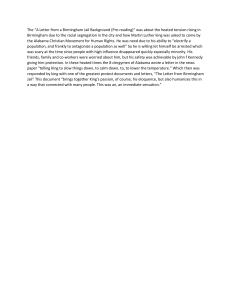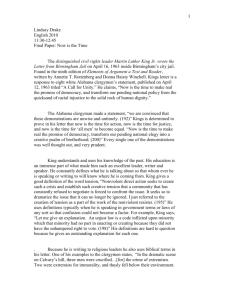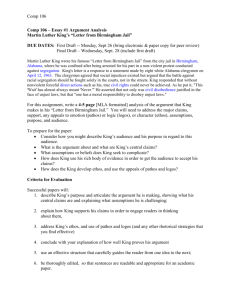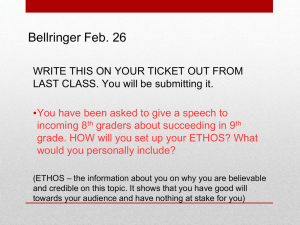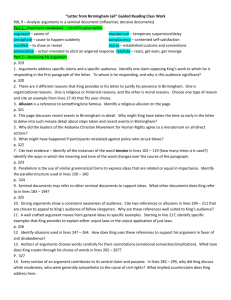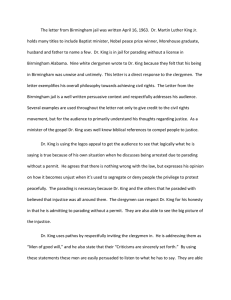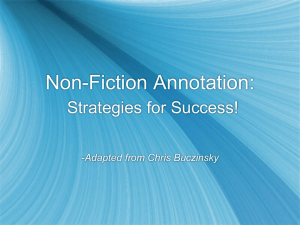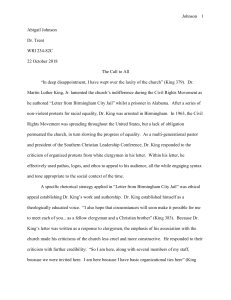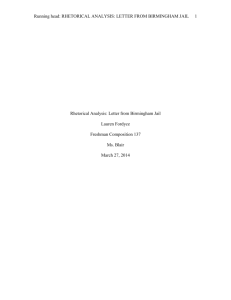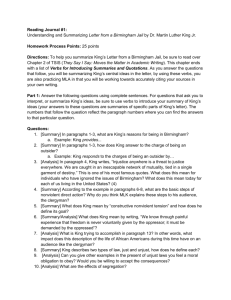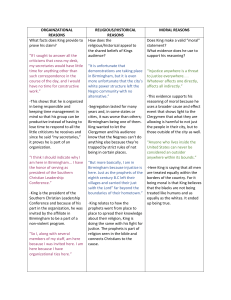Letter from Birmingham Jail Study Guide
advertisement
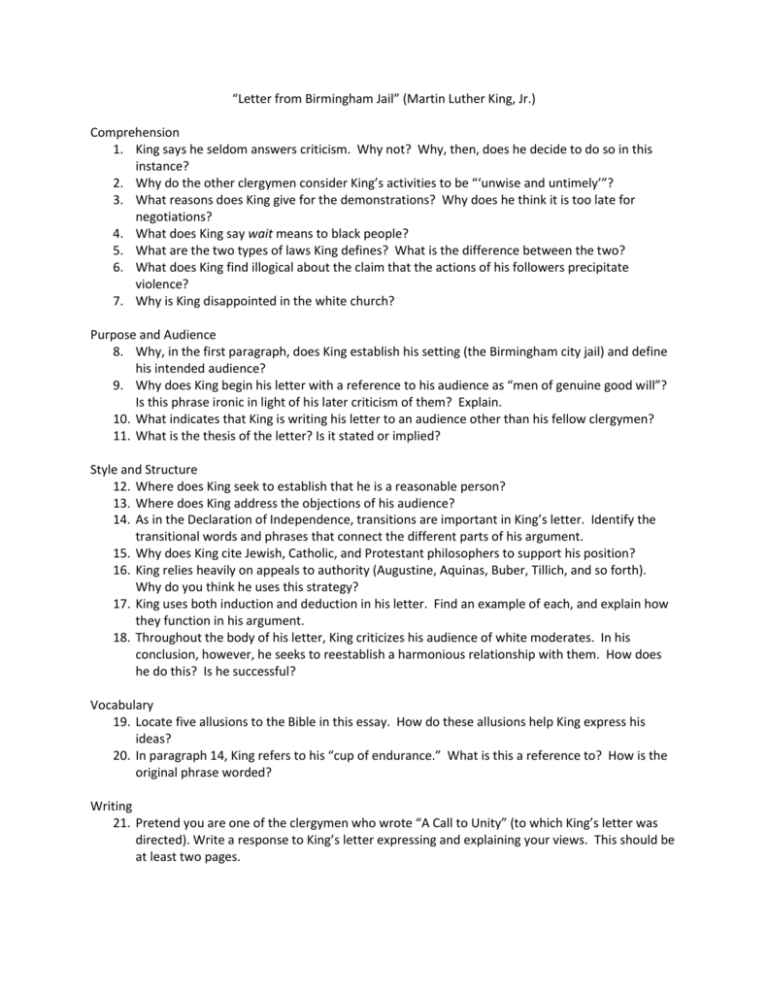
“Letter from Birmingham Jail” (Martin Luther King, Jr.) Comprehension 1. King says he seldom answers criticism. Why not? Why, then, does he decide to do so in this instance? 2. Why do the other clergymen consider King’s activities to be “‘unwise and untimely’”? 3. What reasons does King give for the demonstrations? Why does he think it is too late for negotiations? 4. What does King say wait means to black people? 5. What are the two types of laws King defines? What is the difference between the two? 6. What does King find illogical about the claim that the actions of his followers precipitate violence? 7. Why is King disappointed in the white church? Purpose and Audience 8. Why, in the first paragraph, does King establish his setting (the Birmingham city jail) and define his intended audience? 9. Why does King begin his letter with a reference to his audience as “men of genuine good will”? Is this phrase ironic in light of his later criticism of them? Explain. 10. What indicates that King is writing his letter to an audience other than his fellow clergymen? 11. What is the thesis of the letter? Is it stated or implied? Style and Structure 12. Where does King seek to establish that he is a reasonable person? 13. Where does King address the objections of his audience? 14. As in the Declaration of Independence, transitions are important in King’s letter. Identify the transitional words and phrases that connect the different parts of his argument. 15. Why does King cite Jewish, Catholic, and Protestant philosophers to support his position? 16. King relies heavily on appeals to authority (Augustine, Aquinas, Buber, Tillich, and so forth). Why do you think he uses this strategy? 17. King uses both induction and deduction in his letter. Find an example of each, and explain how they function in his argument. 18. Throughout the body of his letter, King criticizes his audience of white moderates. In his conclusion, however, he seeks to reestablish a harmonious relationship with them. How does he do this? Is he successful? Vocabulary 19. Locate five allusions to the Bible in this essay. How do these allusions help King express his ideas? 20. In paragraph 14, King refers to his “cup of endurance.” What is this a reference to? How is the original phrase worded? Writing 21. Pretend you are one of the clergymen who wrote “A Call to Unity” (to which King’s letter was directed). Write a response to King’s letter expressing and explaining your views. This should be at least two pages.
